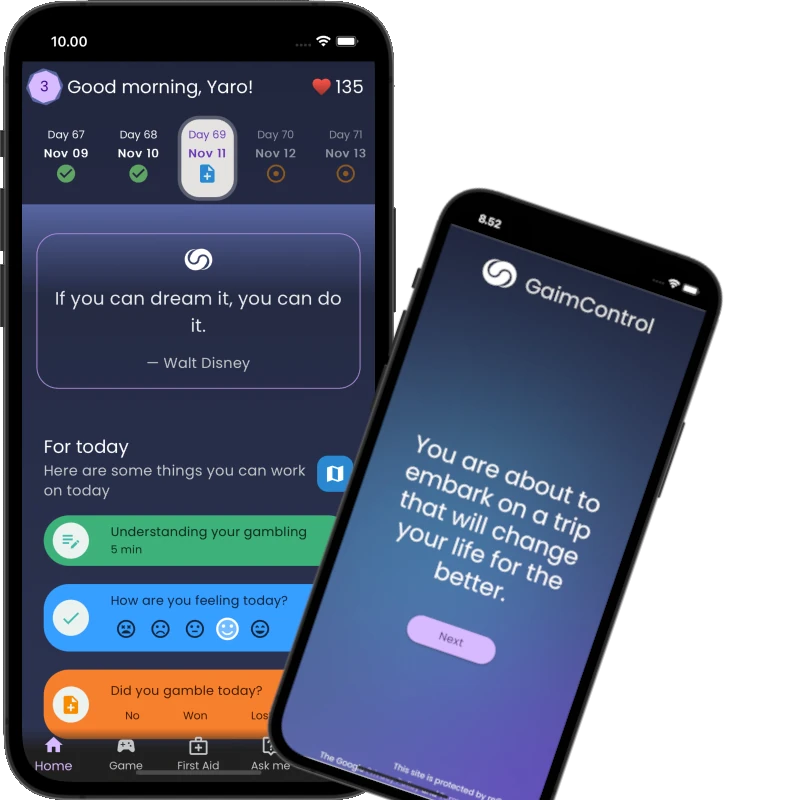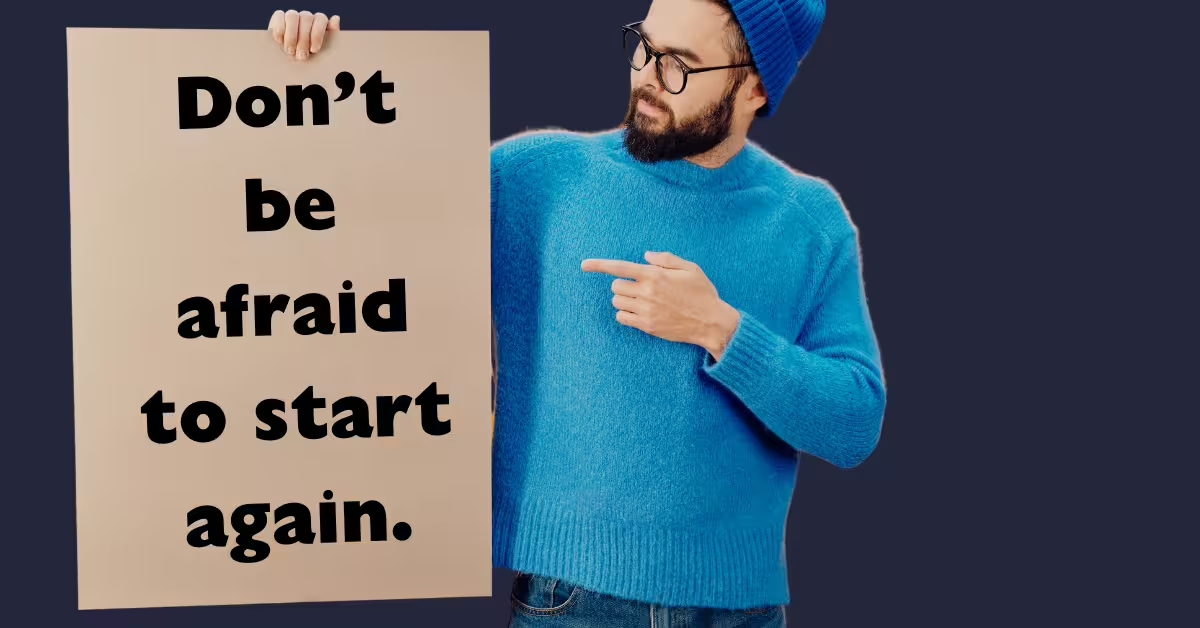Imagine this: you’ve been working so hard—whether for days, weeks, months, or even years—to stay away from gambling and build the life you deserve. But one night, something catches you off guard, and before you know it, you slip and gamble again. At that moment, it feels like all your progress has vanished. You might tell yourself you’ve failed, that everything you worked for is ruined. If this sounds familiar, please know you are not alone. Lapses and relapses are common parts of the journey.

Take back control of your gambling with GaimControl
Learn
Discover
Master
In fact, almost one-third of people on this journey will experience a relapse within their first year. This doesn’t mean you’ve failed or that you should give up. Recovery is not a straight line—it’s a journey. The important thing is that you’re here now, ready to move forward. And that’s what matters most. Here are some steps to help you get back on track.
1. Reflect on What Triggered the Slip
Slips don’t come out of nowhere, even if it feels like they do. Every relapse is connected to something—whether it’s a stressful event, an emotional trigger, or simply being in the wrong place at the wrong time. Take some time to reflect:
- Was there a difficult moment, like a conflict with someone you care about?
- Were you feeling overwhelmed, stressed, or lonely?
- Did a craving hit when you were at a hotel, club, or somewhere gambling was easily available?
The key is not to dwell on what happened but to understand the “why” behind it. When you know what triggered the slip, you can prepare for the future. Next time those triggers show up, you’ll have a better idea of how to respond.
2. Plan Ahead for Next Time and Make Small Changes
Once you’ve identified your triggers, it’s important to have a plan for what you’ll do next time. Here are a few examples:
If stress leads to your relapse, brainstorm healthy ways to relax—like going for a walk or listening to music. If boredom or the desire for fun was a factor, think about alternatives that could satisfy those cravings—like playing a board game, trying a new sport, or finding a new hobby.
Cravings usually pass in about 20 minutes, so finding a distraction can be all it takes to ride it out. This is also a great opportunity to ask yourself: Are there parts of my journey that aren’t working for me anymore?
Sometimes, a slip can be a signal that it’s time to try a new approach. This journey isn’t a one-size-fits-all experience but there are commons elements to it. What matters most is finding tools and strategies that work for you. That is why at Gaimcontrol we have developed a personalised self-help tool for you.

Discover your improvement chart with our personal assessment

3. Build your network — You Don’t Have to Do This alone
You might even be tempted to withdraw from others, thinking it’s easier to recover on your own. Whether it’s through GaimControl’s community or simply talking to one of the vetted members, connecting with people who understand what you’re going through can make a world of difference.
Support from others can help you feel less isolated and more motivated to move forward.
4. Be Kind to Yourself—Forgive and Move Forward
Some people get stuck in feelings of guilt and shame after a relapse. While these emotions are normal, they can be heavy to carry. Remember that relapse is part of recovery for many people, not a sign of failure.
- Instead of focusing on what went wrong, try to shift your perspective:
- What did this experience teach you?
- How can it help you grow stronger moving forward?
This journey isn’t about being perfect—it’s about progress, and every step, even after a slip, is part of that progress. Treat yourself with the same kindness and compassion you would show a friend in your situation. You deserve that grace.
Moving Forward: Recovery Is a Lifelong Process
At GaimControl, we understand how challenging it can be to rebuild your life without gambling. That’s why we use neuroscience-based techniques to help reduce gambling urges and support your journey. If you’re ready to keep going, no matter how many times you’ve had to start again, we’re here to accompany you.
You’ve made it this far—and that’s already a victory. And if you need extra support along the way, we’ve got an app for that.


